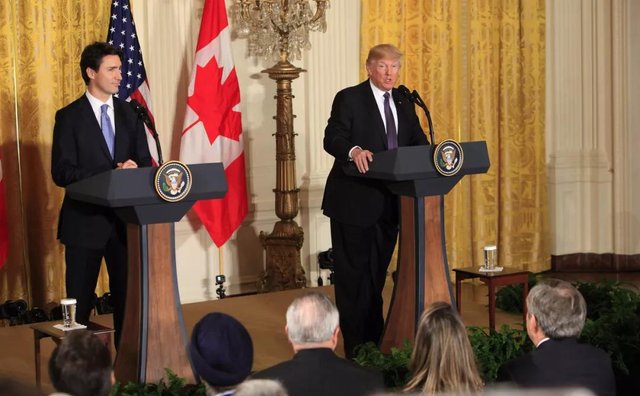China publicly condemns the US’s interference with Canadian sovereignty
The Canadian media recently asked the Chinese Embassy in Canada about the "non-market economy countries" clause in the "Free Trade Agreement" recently reached by the United States, Mexico and Canada. The spokesman Yang Yundong publicly condemned the US intervention in Canadian sovereign hegemony.

The so-called "free trade agreement" reached between the United States and Canada and Mexico should have nothing to do with China. This is something that the Eight Diagrams cannot do. However, the United States has to re-sign such an agreement. In addition to "US priority," another purpose is to target China. One of the terms is such that Canada or Mexico must notify the United States when conducting free trade negotiations with “non-market economy countries” in the eyes of the United States, and the United States also has the right to contact Canada or Mexico and “non-market economy countries”. The signed free trade agreement was reviewed. Even if it is not satisfied, the United States has the right to punish Canada or Mexico.
What does this mean? It means that Mexico and Canada have no economic sovereignty, and all the United States is set, and this clause is obviously aimed at China. Why do you say that? Because according to the agreement reached between China and the United States, after 15 years of WTO accession, it automatically recognizes the market economy status of the other party. China’s accession to the WTO in 2001 should be recognized in 2016, but the United States not only does not recognize it, but also does not recognize the developed countries such as the European Union. The West has not recognized China's market economy status so far.
For this kind of behavior, China certainly has to express its position, so the spokesman of the Chinese Embassy in Canada directly criticized the United States.
The United States engages in so-called "market economy countries" and "non-market economy countries". It is essentially the dishonest performance of the countries concerned in shirking their responsibilities and refusing to fulfill their international commitments. It is a hegemonic act that blatantly interferes in the sovereignty of other countries. It is sad that the national economic sovereignty has been damaged. At the same time, he also said that no matter how other countries adopt trade restrictions on China, China will firmly promote opening up to the outside world at its own pace and, as always, carry out mutually beneficial and win-win economic and trade cooperation with all countries in the world that are equally friendly to China.
It is very cumbersome for the United States to do this, but can it really block China’s trade with relevant countries? In the view of Zhan Hao, this is impossible. There are countermeasures under the policy. I believe that the relevant countries will certainly find ways to evade their own interests. This is difficult for the United States to control. However, in terms of form, this form has objectively added obstacles to China's signing of a free trade agreement with relevant countries, but this will not hinder the relevant negotiations, and we are embarrassed.